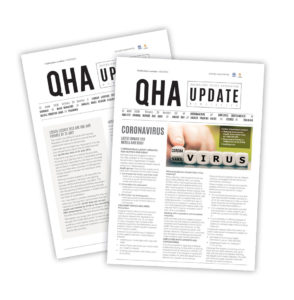Dear Members,
As you may be aware, National Cabinet met yesterday and agreed on a consistent, nation-wide definition of a close contact and the associated isolation periods.
From 12:00am Friday, 31 December 2021, updates were made to the Isolation for Diagnosed Cases of COVID-19 and Management of Close Contacts Direction
New close contact definition:
- A close contact is now classified as someone who has spent more than 4 hours with a confirmed case in a household, accommodation or care facility
- Close contacts will need to isolate for 7 days from the date of exposure and take a Rapid Antigen Test on Day 6
- Symptomatic close contacts must get a PCR test
New casual and low risk contacts definition and a required action:
- Casual and low risk contacts who have potentially been exposed to a confirmed case must monitor symptoms and get tested if symptoms occur.
- Further, confirmed cases will only now need to isolate for 7 days and also receive a negative Rapid Antigen Test result on Day 6 and continue to monitor their symptoms over the following week, repeating testing if symptoms develop.
Implications for venue staff and businesses:
These new definitions, particularly the ‘casual and low risk contact’ required actions, are very welcome for our industry and mean that no staff should be in isolation or getting tested, unless they are showing symptoms.
In short, even where venue staff may have served a COVID positive person, those staff will not be deemed to be close contacts. Further, as casual and low risk contacts, there will be no requirement to get tested (and isolate until getting the result). Staff can continue working and must monitor themselves for any symptoms.
See the following FAQs for further information: https://www.qld.gov.au/health/conditions/health-alerts/coronavirus-covid-19/current-status/public-health-directions/confirmed-cases-and-close-contact-isolation/close-contacts
Note FAQ: If a person I served at a restaurant / shop / retail store tests positive, am I a close contact?
No. Close contacts will be defined as those who usually live with or who have stayed in the same household for more than 4 hours during their infectious period. There may be exceptional circumstances where a person who isn’t a household contact is deemed a close contact by a health worker.
Regards,
Queensland Hotels Association


